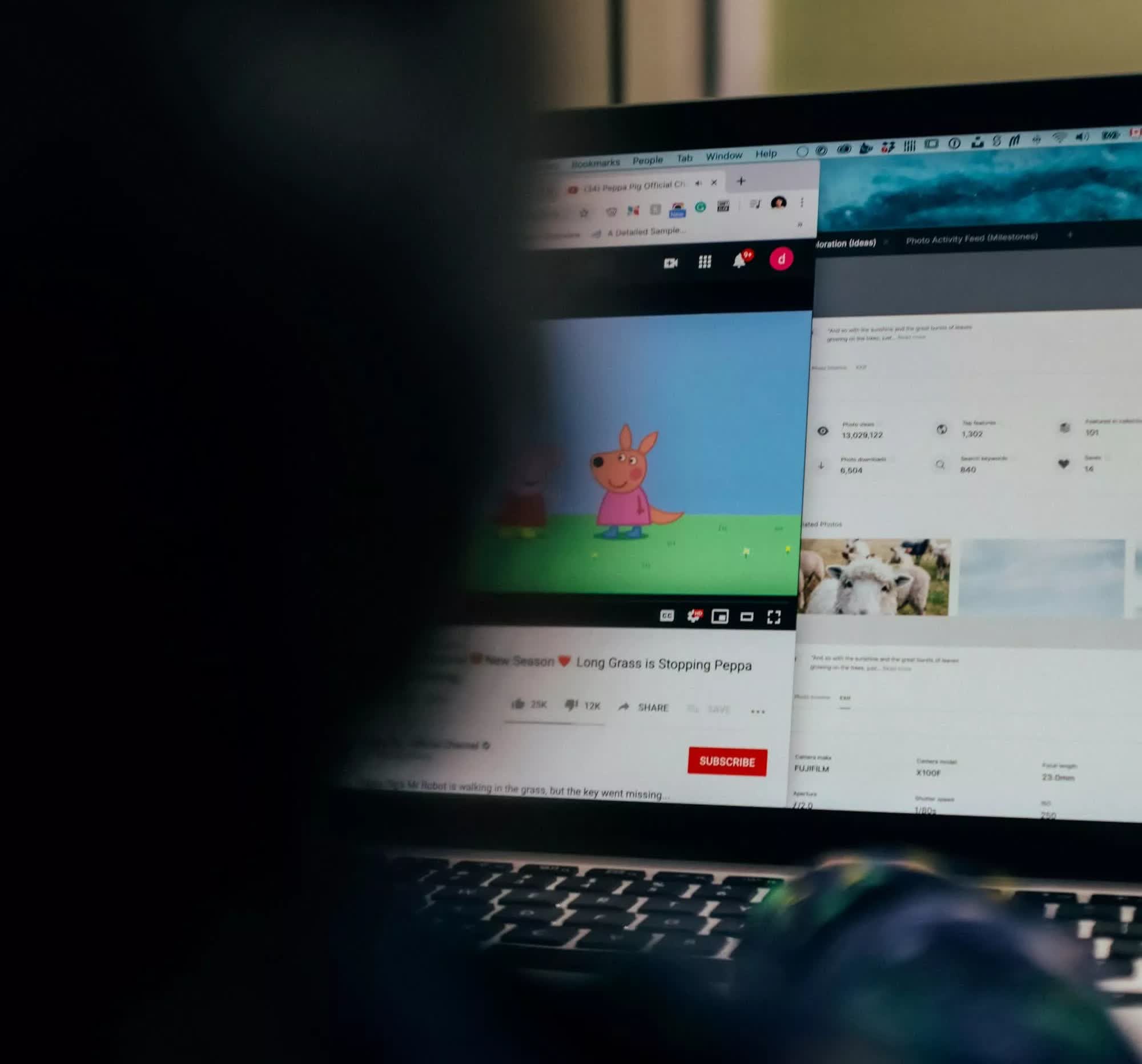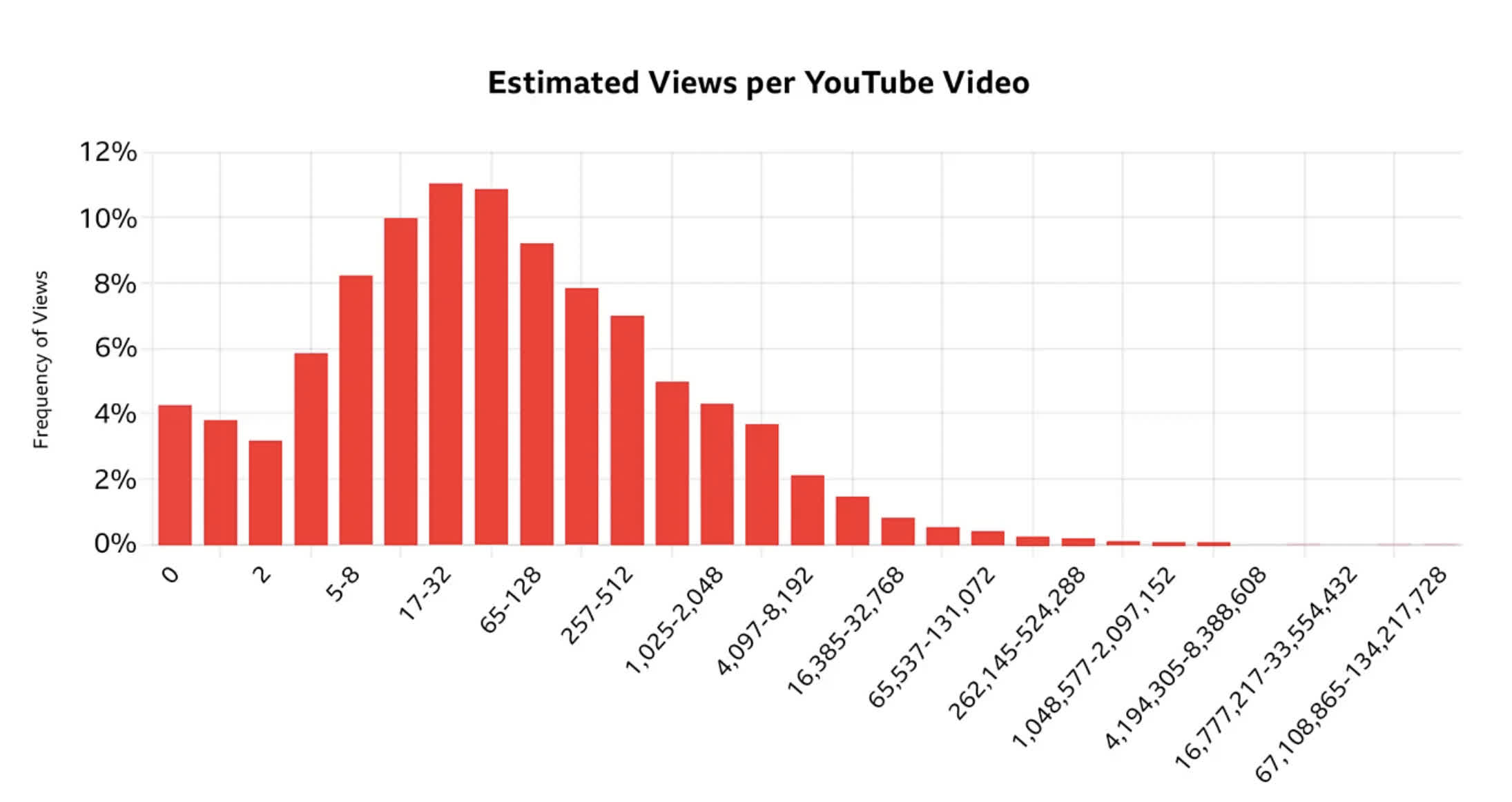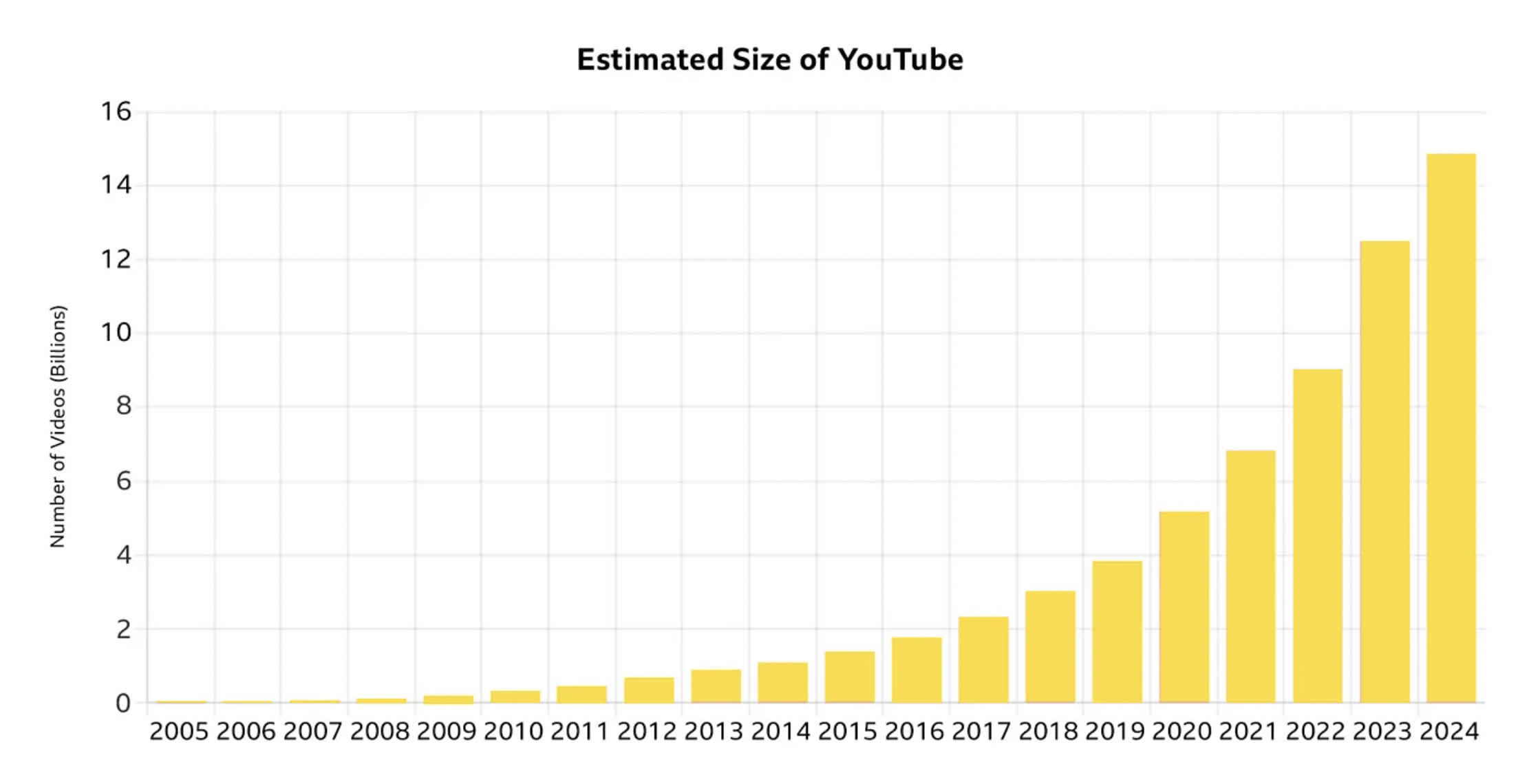The big picture: Google remains tight-lipped about many details surrounding YouTube's inner workings. And that's a problem, according to experts, given the platform's massive global reach and influence. But now, thanks to an innovative research approach, we're getting some of the first concrete figures from the platform.

A team of researchers led by Ethan Zuckerman at the University of Massachusetts Amherst has devised an ingenious approach to peek behind YouTube's tightly guarded curtain. They developed a program that essentially "guesses" random video URLs until it stumbles upon legitimate uploads.
You see, every YouTube video is assigned a unique 11-character identifier within a standard URL format (for example: youtube.com/watch?v=v5B9_j114iA). The program, which is essentially a scraper, randomly generates these character strings and checks for matches. Essentially, it "drunk dials" the platform to see if a video exists.
Zuckerman likened the process to a teenager prank-calling random numbers, as it requires billions of attempts before successfully landing on actual videos.
Most YouTube videos receive fewer than 500 views, and 4% have never been watched even once. Graph by University of Massachusetts at Amherst, BBC.
BBC reports that for their initial dataset, the researchers attempted more than 18 trillion potential URLs, identifying just over 10,000 real videos. This translates to approximately 1.87 billion failed attempts for every successful find. If a person were to conduct this search manually, spending three seconds per attempt, it would take roughly 178 years to uncover a single video.
The findings were worth the effort, revealing never-before-seen numbers from one of the most powerful communication platforms ever created.
For one, the research estimates a staggering 14.8 billion total videos on YouTube as of mid-2024. Unsurprisingly, most of these videos are barely noticed. The median YouTube upload has just 41 views, with 4% garnering no views at all. Over 74% have no comments and 89% have no likes.
The production values are also remarkably modest. Only 14% of videos feature a professional set or background. Just 38% show signs of editing. More than half have shaky camerawork, and audio quality varies widely in 85% of videos. In fact, 40% are simply music tracks with no voice-over.
Moreover, the typical YouTube video is just 64 seconds long, and over a third are shorter than 33 seconds.
The size of YouTube's library has been a somewhat veiled secret, but new research offers a rare glimpse into its true scale. As of 2024, YouTube is estimated to host nearly 15 billion videos – an astonishing growth trajectory that underscores its role as a vast but often unseen digital archive. Graph by University of Massachusetts at Amherst, BBC.
These numbers paint a very different picture from how YouTube portrays itself. The platform originally branded itself as a space for ordinary people to "broadcast yourself," but its messaging has since shifted.
YouTube CEO Neal Mohan recently described its role in enabling influencers to build careers, stating that "YouTubers are becoming the startups of Hollywood."
However, Ryan McGrady, a senior researcher on Zuckerman's team, told the BBC that this narrative overlooks a crucial reality: YouTube is not just an entertainment hub – it has become a form of digital infrastructure.
Case in point: just 0.21% of the sampled videos included any kind of sponsorship or advertising. Only 4% had common calls to action such as liking, commenting, and subscribing. The vast majority weren't polished content plays but rather personal expressions – perhaps not so different from the old camcorder days.
Masthead credit: Charles Deluvio
YouTube by the numbers: uncovering YouTube's ghost town of billions of unwatched, ignored videos

